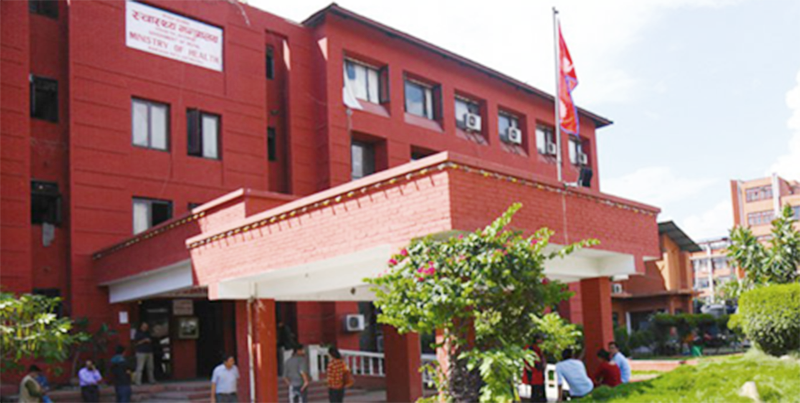Govt plans to ease lockdown, restart economy
Kathmandu, May 1
The Ministry of Health and Population is charting out plans to ease the nationwide lockdown to curb the spread of coronavirus in a bid to gradually restart the stalled economy.
If the recommendations of the ministry are adopted, 77 districts of the country would be divided into three clusters of red, yellow and green, depending on population density, geography, linkage to international border and number of coronavirus cases. Districts that fall under yellow and green zones will see relaxation in restrictions, whereas areas categorised as red zones will continue to remain shut.
The ministry has started preparing modalities to ease the lockdown based on the instruction given by the High-Level Coordination Committee for the Prevention and Control of COVID-19 led by Deputy Prime Minister and Defence Minister Ishwar Pokhrel. The ministry’s recommendations would be implemented once the committee and the Cabinet endorsed them.
The federal government enforced nationwide lockdown in Nepal on March 24 to prevent the spread of COVID-19. Since then, almost all economic activities have come to a grinding halt, inflicting billions of rupees of losses on businesses and rendering many jobless.
While the government has said it would prioritise public health over economic activities, the prolonged lockdown has lately started causing widespread unease among Nepalis with many saying the government must take incremental steps to ease restrictions.
“We can’t lift the lockdown across the country immediately as the number of (coronavirus) cases is growing. But we are conducting meetings with experts to ease the lockdown by categorising areas based on the number of (coronavirus) cases,” said Samir Kumar Adhikari, chief of Health Emergency Operation Centre at the Ministry of Health and Population.
It is learnt that the ministry will present its findings and recommendations to the COVID-19 committee by next week.
As per the plan prepared by the ministry, districts with more than five coronavirus cases will be classified as red zones. Districts with one to five coronavirus cases will be categorised as yellow zones. Districts with no case of coronavirus will fall in the green zone.
Bara, Rautahat and Udayapur that have emerged as coronavirus hotspots will fall in the red zone. Kathmandu that has no active coronavirus case, Pokhara, which has detected no coronavirus case so far, and Chitwan will be categorised as yellow zones because of their population density. Districts, such as Kailali and Kanchanpur, and cities such as Nepalgunj will also be classified as yellow zones because of their proximity to the Indian border. Hilly districts with no COVID-19 case will be declared green zones.
Districts that fall under red zones will continue to remain under the lockdown. In yellow zones, even non-essential service providers, such as shops that sell construction materials, barbershops and shops that offer plumbing and electrical wiring services, will be allowed to resume their businesses. But the vehicular movement, both public and private, will be completely banned in yellow zones and restaurants, movie theatres and schools will have to remain shut as well.
Vehicular movement, both public and private, will only be allowed in green zones. Green zones can also lift restrictions on all types of shops and other businesses by following social distancing measures. “But schools and colleges will not be allowed to open even in the green zones,” said Roshan Pokharel, chief consultant at the health ministry, adding, “We are still working on these modalities. Nothing has been finalised yet.”
A version of this article appears in e-paper on May 2, 2020, of The Himalayan Times.






